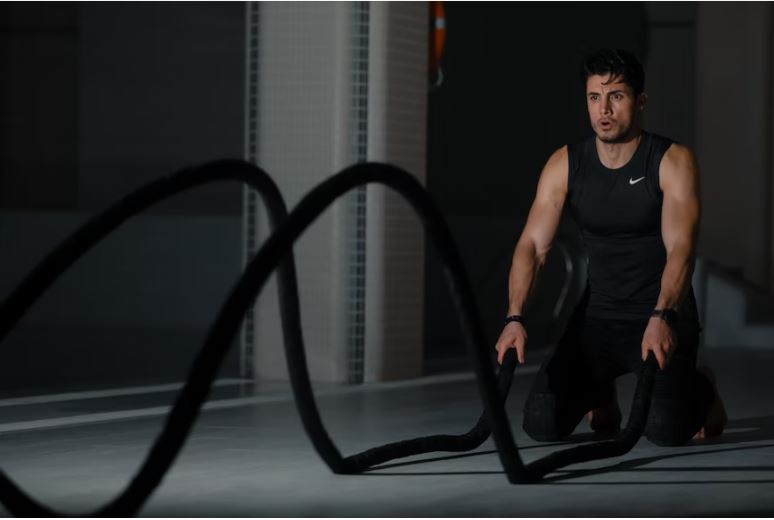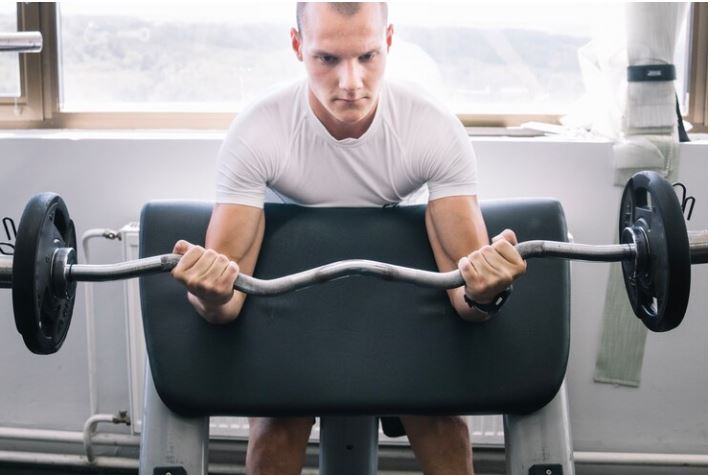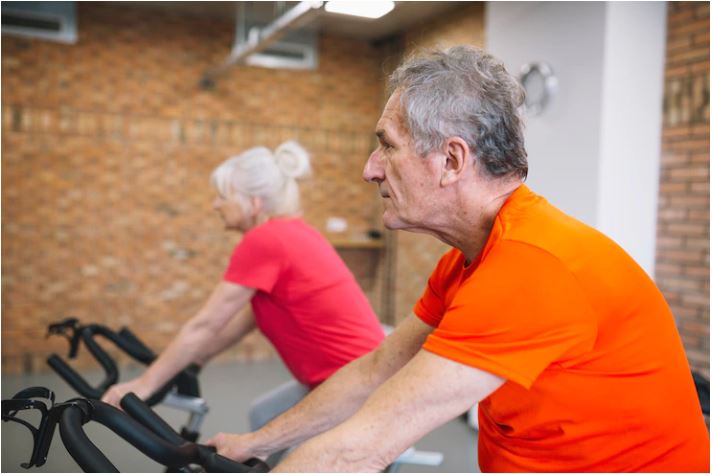
Feeling weaker in the gym can be frustrating and disheartening, especially if you have been making consistent progress toward your fitness goals. While there are many factors that can contribute to a decline in strength, it is important to identify the root cause of your weakness in order to handle it and get back on track. In this article, we will explore 7 reasons why you may be getting weaker in the gym and what you can do to address them.
You may be feeling weak due to lack of rest, poor exercise technique, or bad nutrition. Figure out what is causing your weakness and make changes to get back on track. Whether you’re a beginner or experienced with fitness, talk to a healthcare provider if you’re feeling incredibly weak.
Lack of sufficient rest and recovery
One of the main reasons why you may be feeling weaker in the gym is a lack of sufficient rest and recovery. Overtraining can lead to fatigue, decreased performance, and muscle weakness. It is important to allow your body adequate time to recover between workouts in order to allow for muscle repair and growth.
This can be achieved by including rest days in your workout routine and getting enough sleep each night. It is also important to pay attention to your body’s fatigue levels and listen to any warning signs of overtraining, such as muscle soreness, fatigue and decreased performance. By ensuring that you are allowing your body sufficient rest and recovery, you can maintain your strength and prevent a decline in performance.
Insufficient nutrition

Another potential reason why you may be feeling weaker in the gym is insufficient nutrition. Adequate intake of protein and other nutrients is essential for muscle recovery and growth. And a lack of these nutrients can impair your ability to gain strength and maintain muscle mass. It is important to ensure that you are consuming enough calories and nutrients, particularly protein, in order to support your workouts and allow for muscle repair and growth.
Additionally, You must stay hydrated and consume enough fluids, as dehydration can also contribute to muscle weakness. By paying attention to your nutrition and ensuring that you are fueling your body properly to maintain energy levels, you can help to maintain your strength and energy to support your fitness goals.
Poor exercise form
Using improper form during exercises can result in muscle imbalances and an increased risk of injury, leading to decreased strength. It is important to focus on proper form and technique when performing exercises in order to maximize the benefits and minimize the risk of injury. This includes using the correct muscle groups for the specific exercise, maintaining proper posture and alignment, and using a full range of motion.
There are several ways to ensure that you are using the proper form during your workouts. One option is to work with a personal trainer or exercise professional who can demonstrate proper form and provide guidance and feedback. You can also consider videoing yourself while performing exercises to identify any form issues and make corrections as needed. Additionally, it can be helpful to focus on your breathing and control during exercises, as this can help you maintain proper form and improve the effectiveness of your workouts. By paying attention to your form and technique, you can improve your strength and reduce the risk of injury.
Lack of progressive overload

In order to continue making progress in the gym and increasing your strength, it is important to progressively increase the demands placed on your body through a concept known as progressive overload. Progressive overload refers to gradually increasing the intensity or volume of your workouts over time in order to continue challenging your muscles and making progress. Without progressive overload, your muscles will become accustomed to the same workload and you may plateau or even experience a decline in strength.
There are several ways to incorporate progressive overload into your workouts. One option is to increase the weight you are lifting as you become stronger. You can also try increasing the number of reps or sets you perform for a given exercise, or decreasing the rest time between sets. Another option is to incorporate new exercises or training modalities into your routine to continue challenging your muscles in new ways. By progressively increasing the demands placed on your body, you can continue to make progress and increase your strength. Using proper weight training can be beneficial.
Undiagnosed medical condition
Certain medical conditions can cause weakness and a decline in strength. If you are experiencing unexpected weakness and have been unable to identify any other underlying cause, it is important to consult with a healthcare provider to rule out any potential medical issues. Some medical conditions that can cause weakness include anemia, thyroid dysfunction, and hormonal imbalances.
You should seek the advice of a healthcare professional, determine the cause and receive appropriate treatment. By identifying and addressing any underlying medical conditions, you can take steps to improve your strength and overall health.
Age-related muscle loss

As we age, it is natural for our bodies to undergo changes that can affect our muscle mass and strength. One of these changes is age-related muscle loss, also known as sarcopenia. Sarcopenia is a natural part of the aging process and is characterized by a gradual decline in muscle mass and strength. This process typically begins in our 40s and 50s and progresses as we get older.
While sarcopenia is a natural part of aging, there are steps you can take to slow the process and maintain your muscle mass and strength. Regular exercise, particularly strength training, can help to slow the decline in muscle mass and improve strength. Adequate intake of protein and other nutrients is also important for supporting muscle recovery and growth. Finally, staying active and maintaining a healthy lifestyle can help to preserve muscle mass and strength as we age. By taking steps to maintain your muscle mass and strength, you can continue to make progress in the gym and maintain your physical capabilities as you age.
Inactivity or decreased physical activity
A decrease in physical activity can result in muscle atrophy and weakness. It is important to maintain a consistent exercise routine in order to maintain muscle strength and overall physical fitness. If you have been inactive or have significantly decreased your physical activity levels, it is important to ease into a new exercise routine gradually in order to avoid injury and allow your body to adapt.
Starting a new exercise program can be intimidating, but it is never too late to get started. If you are new to exercise or returning after a period of inactivity, it is important to consult with a healthcare provider and start slowly. Begin with low-impact activities and gradually increase the intensity and duration of your workouts as your fitness level improves. It is also important to use proper form and technique when exercising to reduce the risk of injury. By starting slowly and gradually increasing your physical activity levels, you can safely get back on track and begin working towards your fitness goals.
Conclusion
There are many potential reasons why you may be feeling weaker in the gym. From a lack of sufficient rest and recovery to poor exercise form and insufficient nutrition, it is important to identify the root cause of your weakness in order to address it and get back on track with your fitness journey. By paying attention to your body, listening to any warning signs of overtraining, and seeking the advice of a healthcare provider if necessary, you can take steps to maintain your strength and continue making progress in the gym. Remember, it is never too late to start a fitness program and the benefits of regular physical activity are numerous. By taking the time to carefully plan your fitness journey and addressing any issues that may be causing a decline in strength, you can get back to achieving your health and fitness goals.




